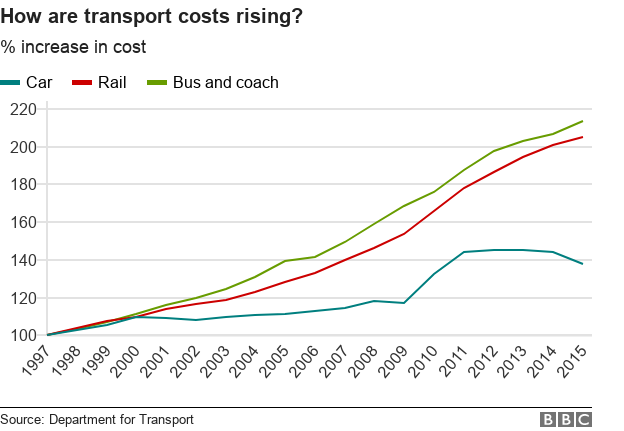Rail fares in England and Wales are rising by nearly 5% despite train cancellations being among the highest levels for 10 years.
Public transport campaigners claimed passengers are being “punished” and will be “angry” at Sunday’s price hikes.
The equivalent of 3.9% of services in England and Wales were cancelled in the year to February 3, PA news agency analysis of Office of Rail and Road (ORR) figures shows.
That is narrowly below the worst performance of 4.1% in records dating back to 2014.



I mean, shouldn’t they rise? I’m in the US, and we’ve just had a bunch of inflation, and I’d assume that the UK has as well. It’d be kind of odd if prices didn’t rise in the presence of inflation. The railway’s costs are going to rise with inflation.
googles
https://www.in2013dollars.com/uk/inflation/2023?amount=100
According to this, in 2022, the pound saw 7.9% inflation, in 2023, 7.07% inflation, and in 2024, 3.9% (I assume annualized for the last).
reads article
The article says that the Welsh government has stated – I would assume correctly – that the fare increases are below inflation:
You have to understand the wider context. In a climate emergency, UK government has spent years increasing public transport costs while deliberately holding down the cost of motoring, most notably through freezing the Fuel Duty Escalator for about 12 years now.